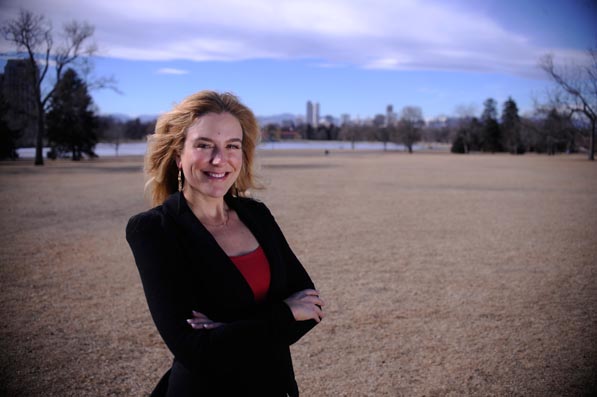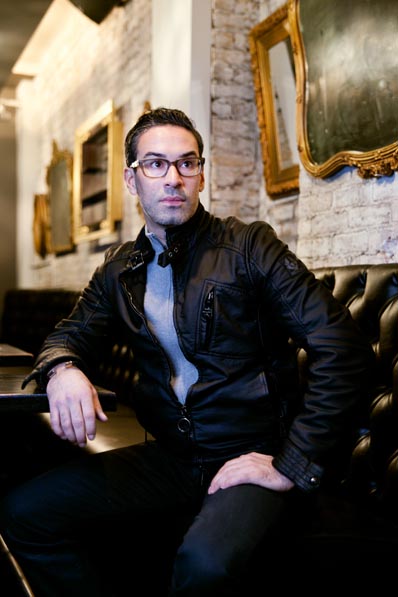The O’Melveny & Myers LLP attorney shares how she’s succeeded in a male-dominated industry and how she’s helping other women do the same. As partner at O’Melveny & Myers LLP, one of Los Angeles’s most successful law firms, Catalina Vergara shares why it’s the best time to be a Latina in law.
When Catalina Vergara was growing up in Florida, her parents told her she could be anything she wanted—“just don’t be an attorney,” they’d say. For a while, it seemed she’d taken their advice. In college she studied literature. Upon graduation, she lived in San Francisco and worked at a nonprofit. Eventually, however, she felt the tug of the law.
“I was working in nonprofit and wanted to have a greater impact, so I decided to study public policy at Georgetown University and I kept hearing, ‘If you’re going to do that, you might as well get a law degree at the same time,’” Vergara says. “My mom’s side of the family is filled with attorneys and my dad is an attorney, but there was no big plan to become a lawyer. Once I was in law school, I was really hit with the realization: this is what I was meant to do with my life. I loved everything about it and it felt like I found my place in the world.”
Thinking Out Loud
Trading Words With
Catalina Vergara
LATINA
A strong woman like my grandmother.
SUCCESS
Happy with the choices you’ve made.
LEADERSHIP
Having the courage of your convictions.
PROFESSIONAL
I’m taking my definition from something I saw Supreme Court Justice Sonia Sotomayor say on Sesame Street: A professional is someone who works very hard to do something they want to do for a very long time.
After moving to Los Angeles and working at a law firm for a year, Vergara scored a clerkship with the Honorable James V. Selna, who had just been appointed as a US federal judge. It was an incredibly important milestone in Vergara’s career, one that pushed her career forward and grew her confidence. “Judge Selna was the first person to tell me I was good at being a lawyer. I thought I was—or had the potential to be—because I worked so hard at it, but, he said, I had real talent,” Vergara recalls. “I think up to that point that wasn’t something I really felt or understood.”
In the almost two years Vergara spent with him, Selna often spoke fondly of his time with Los Angeles-based international law firm O’Melveny & Myers LLP. Convinced it might be the firm for her, Vergara joined in 2004 and she made partner in 2012. Clearly, this is no small task for a Hispanic woman in what is a male-dominated field. During the years leading up to being named partner, Vergara watched as many talented female attorneys left the field. Believing her profession was losing too many talented women, she formed the Women Attorneys’ Network.
“I felt that we, as female attorneys, could stand to develop stronger networks and support systems,” Vergara says. “I saw the network as a vehicle that could enrich our experience at the firm. It’s just one of many affinity groups O’Melveny & Myers has.”
Inclusion is something that Vergara cares about deeply, especially after viewing an eye-opening presentation by the American Bar Foundation on a 10-year study that tracked the progress of diversity in the legal profession. It was reported that at every stage of academic and professional progress, there was a sizeable drop off in Hispanic representation in high school, college, and law school, and fewer Latinos were making it to the next step. One of the reasons for this: informal isolation. Latinas experienced one of the highest degrees of informal isolation in the law profession.
“The fact that I made it and that I can mentor others is a source of pride for me because it makes a difference to see others like you make it,” Vergara says. “There were times in my career where I certainly felt like I was charting my own path, especially when I had my first daughter and I was juggling this demanding profession. I don’t care who you are, a great mentor can make all the difference. You know how they say it takes a village? I certainly had my village.”
According to Vergara, it’s an incredibly exciting time to be an attorney. Firms are looking to become more innovative to better serve their clients’ needs and this desire has opened up a world of opportunities for people from different walks of life and with different points of view. Vergara is taking advantage of the opportunities; her litigation practice is thriving. Some days she’s working on briefs, others days she is taking depositions or preparing for trial. “I feel like I’m learning and helping people every day and I love helping clients get through thorny problems. That includes everyone from big companies to my pro bono immigration clients,” Vergara says. “I love that every day is different and that this profession encourages creativity of thought.”

